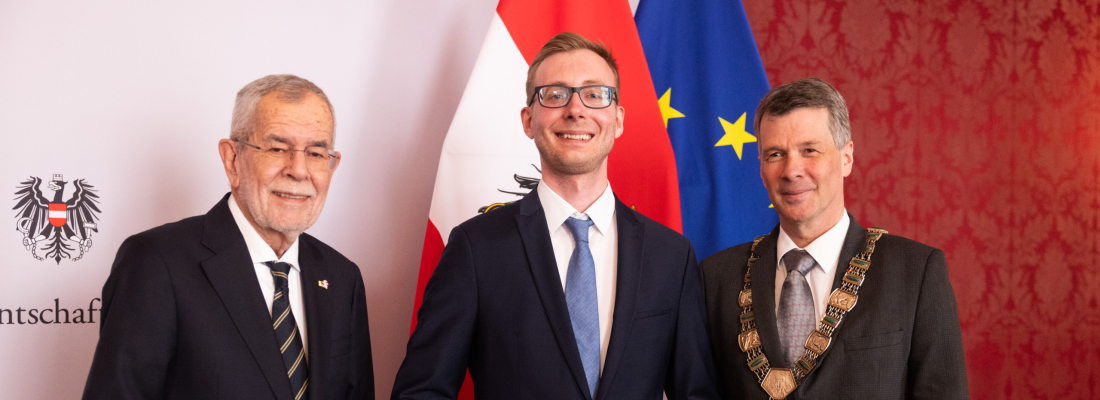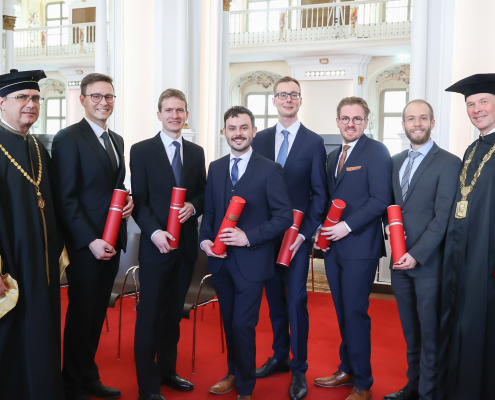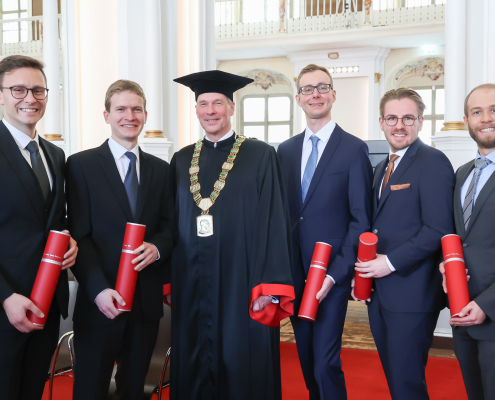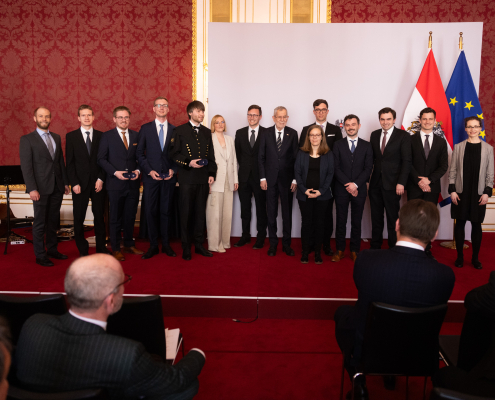²⁰²⁴⁻⁰³⁻²⁷
Graduation “sub auspiciis” for Daniel Kales
On March 15th, together with five other TU Graz/Uni Graz graduates, Daniel Kales received his doctorate under the auspices of the Austrian President – the highest honour in Austrian education. Uni Graz principal Peter Riedler and TU Graz principal Horst Bischof presented the six graduates with this honour on behalf of the President of Austria, Alexander Van der Bellen, who presented the graduates with their ring of honour on March 18th in Vienna.
We at IAIK want to congratulate Daniel and wish him all the best in his future endeavours!
Daniel’s doctoral thesis, “Improving Modern Cryptographic Protocols using Domain-Specific Symmetric Primitives”, was written under the supervision of Univ.-Prof. Christian Rechberger.
Abstract
Cryptographic protocols have become commonplace in our daily lives due to them being used to secure our Internet traffic with TLS, enabling secure messaging, disk encryption, electronic signatures and much more. Internally, many of these protocols use standard symmetric-key primitives such as block ciphers and hash functions as building blocks. However, as previous exploration has shown, the standard choices suggested by the community and even government standards and regulations are not always a good fit in all scenarios. Modern cryptographic protocols such as secure multi-party computation, zero-knowledge proof systems, and fully homomorphic encryption benefit greatly in terms of efficiency if domain-specific block ciphers and hash functions, designed with these use-cases in mind, are used instead.
In this thesis, we are concerned with several aspects of the security and efficiency of protocols using domain-specific primitives. We first investigate domain-specific primitives themselves, showing how to improve the evaluation of an existing design and also present a new candidate for use-cases we discuss below.
We are also concerned with the long-term security of cryptographic primitives, where the security of many existing digital signature schemes is being threatened by quantum attacks. One approach to building post-quantum secure primitives is to rely on block ciphers and hash functions only, since the best-known quantum attack on these primitives still has exponential runtime. We investigate the security and efficiency of such post-quantum signature schemes, where again, one of the constructions we are interested in, Picnic, is using a domain-specific block cipher for improved efficiency. We show how to improve the performance of Picnic further, investigate the security of alternative post-quantum signature designs and propose two new post-quantum signature designs that perform better than Picnic.
Finally, we investigate another application in private set intersection (PSI). We show that by combining generic multiparty computation with block ciphers specifically designed for this use case, we can create a protocol that is competitive with custom PSI protocols in the context of mobile contact discovery.






